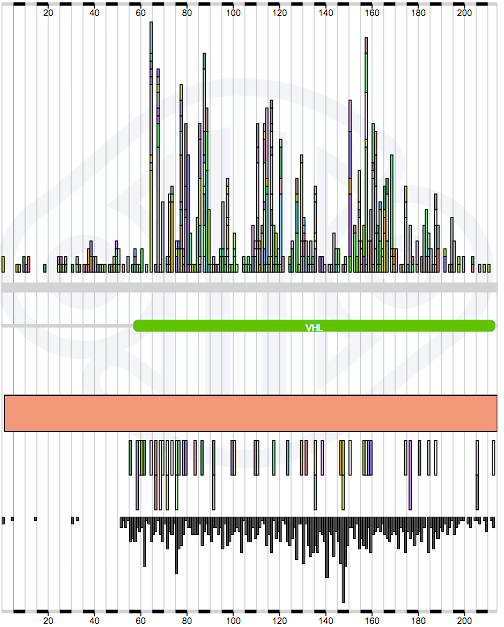COSMIC celebrates its 10th anniversary

Twelve years ago, cancer researchers at the Wellcome Trust Sanger Institute created a spreadsheet of the latest findings in cancer genetics that they updated weekly to guide their work. But, as new sequencing technologies and analysis yielded ever greater volumes of information, the pace of publications outstripped the ability of the team to keep the spreadsheet up to date. To ensure this valuable resource continued on a sure footing, COSMIC was converted into a database and two full-time curators were brought on board to feed it. The system was made publicly available online in February 2004, answering a desperate need in the research community.
As our understanding of cancer has developed, COSMIC has adapted and grown. At its public launch, COSMIC contained information on only four genes; today mutations are described in almost all human genes. Two of the biggest stages in COSMIC’s development over the past decade have included the introduction in 2007 of fusion genes, hybrids formed of two separate genes, and whole genomes in 2009. The database now includes curation of the world’s knowledge of cancer mutations in 132 known cancer genes and 208 fusion pairs, together with over 8000 full cancer genomes. Still growing fast, COSMIC is looking to double its database size in the next release, due May 2014.
“The amount of data that we’re dealing with has exploded. Gathering varied types of mutation in huge quantities gives COSMIC great value; making it all accessible is a very interesting challenge.”
Simon Forbes Director of COSMIC and a Senior Scientist in the Cancer Genome Project at the Sanger Institute
As well as continuing to grow this essential catalogue, COSMIC’s role in research in the near future will include building an analytical suite of tools to help researchers interpret data. These tools could be used for drug targeting and validation, eventually looking to aid doctors working directly with cancer patients in the clinic.
“From the beginning the strength of COSMIC has been the accessible and usable way it presents this complex data. The challenge we will face in the future is to accommodate the needs of clinicians and scientists who are not trained bioinformaticians.”
Simon Forbes Director of COSMIC
“COSMIC has become the global workhorse for scientists and clinicians using genetics to understand cancer development and to manage patients. Our hope over the next decade, is that COSMIC will continue to grow both in content and scope and come closer to achieving its long-term goal of describing in detail every mutation in cancer.”
Professor Sir Mike Stratton Director of the Sanger Institute, who was instrumental in the development of COSMIC
More information
Selected websites
COSMIC
The Catalogue of Somatic Mutations in Cancer (COSMIC) was developed by the Cancer Genome Project at the Wellcome Trust Sanger Institute. The catalogue is designed to store and display somatic mutation information relating to human cancers. The core funding for COSMIC comes from the Wellcome Trust. COSMIC’s industrial collaborators are Bayer, Cancer Research Technology and AstraZeneca.
The Wellcome Trust Sanger Institute
The Wellcome Trust Sanger Institute is one of the world’s leading genome centres. Through its ability to conduct research at scale, it is able to engage in bold and long-term exploratory projects that are designed to influence and empower medical science globally. Institute research findings, generated through its own research programmes and through its leading role in international consortia, are being used to develop new diagnostics and treatments for human disease.
The Wellcome Trust
The Wellcome Trust is a global charitable foundation dedicated to achieving extraordinary improvements in human and animal health. We support the brightest minds in biomedical research and the medical humanities. Our breadth of support includes public engagement, education and the application of research to improve health. We are independent of both political and commercial interests.


